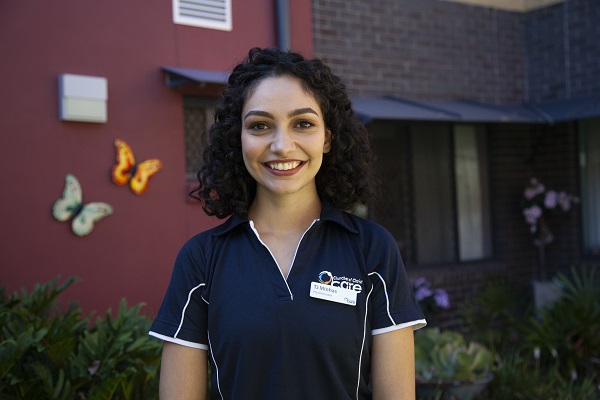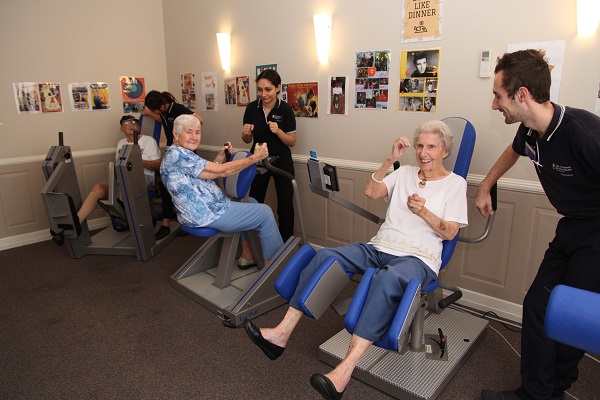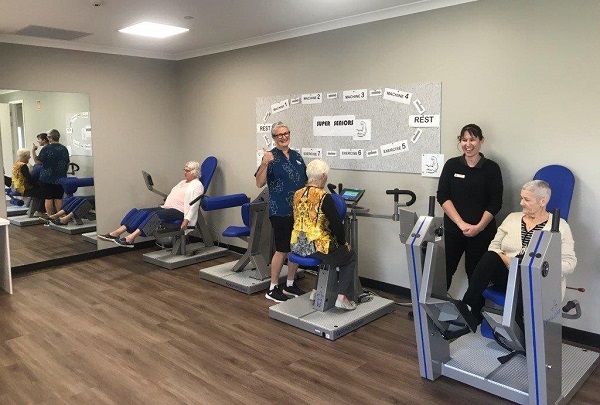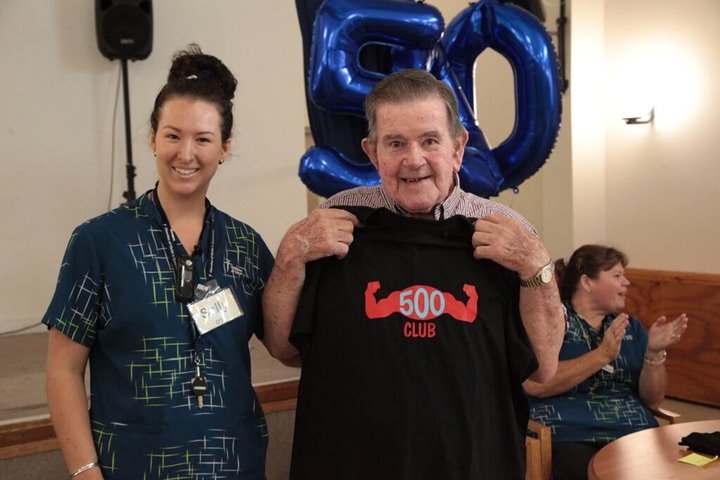The best retirement is an active one

Churches of Christ Care Physiotherapist, Taranjot shares how exercising can increase your happiness and health in retirement.
Living your golden years happy and healthy
Making your way into retirement, you have certainly earned the right to rest and relax, but that doesn’t mean sitting in a chair all day. In recent years, there has been a gradual shift towards living a more active lifestyle in retirement to maintain independence or embark on a well-deserved holiday. But being able to maintain that lifestyle requires regular exercise. Here are two reason why moving more can make you feel better.
1. Psychological wellbeing
The benefits of exercising are equally mental as they are physical. Getting into an exercise routine helps manage cholesterol levels and control blood pressure. The cardiovascular benefits from physical activity improves brain health and increases volume in areas of the brain including the hippocampus, which looks after emotions, memory, behavioural inhibition, and spatial navigation.
Throughout the brain, the functionality and structure of neurones and their connections are improved by exercising, and as a result there is a reduction in amyloid plaques which are precursors of the Alzheimer’s disease. Amyloid plaques are clumps of protein between neurons that lead to memory loss, depression and disorientation. All this adds up to improved abilities and an increase in psychological wellbeing.
2. Physical wellbeing
Aside from increase in cognitive function, regular exercise offers many physical benefits. Exercise is the most effective, non-drug treatment for hip and knee osteoarthritis. Working to improve your strength, endurance and balance will also reduce the risk of falling. Exercises such as walking, stretching and strength training promote bone growth, increases coordination and maintain muscle mass, which can help prevent falls. Now if that is not a powerful incentive to exercise, I don’t know what is!
Finding motivation
Recognising exercising as a positive outlet can be the start of finding the motivation to exercise. Self-monitor your behaviour by keeping a journal and plan your exercise routine ahead by referencing research, talking to your General Practitioner or a Physiotherapist.
Group exercising is the most rewarding way to embrace a new active lifestyle. Social contact and exercising outdoors can positively affect your mood and endurance, and increase your motivation to engage in exercise regularly. If you are 30, start now. If you’re 60 or 70 or 80, start now too. It’s never too late to start working on staying in the best possible shape for the greatest possible enjoyment of life.
Enjoy your exercise! I wish you a happy hippocampus!



